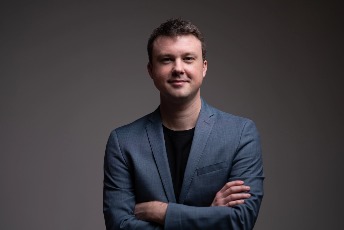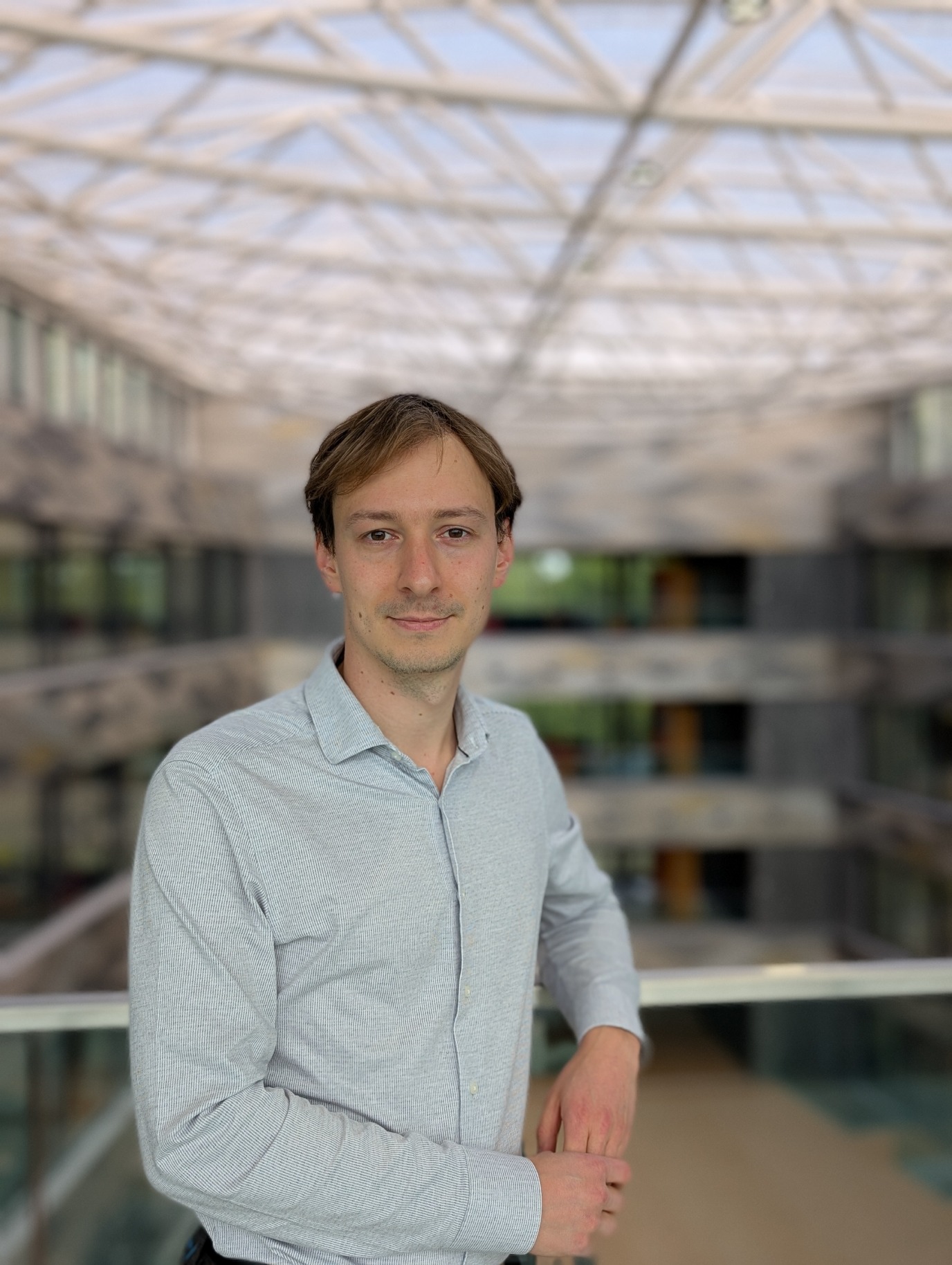ERC Starting Grants for five UG researchers
Five UG researchers, working at the Faculty of Science and Engineering and the Faculty of Behavioural and Social Sciences, have been awarded an ERC Starting Grant: Miles Wischnewski, Michael Lerch, Loredana Protesescu, Tim Lichtenberg en Alexander Belyy. The European Research Council's (ERC) Starting Grants amount to €1.5 million each, for a period of five years. The grants are intended for outstanding researchers with the aim of stimulating cutting-edge research in Europe.

Miles Wischnewski: The role of phase coding in memory processing
Imagine walking into a room full of people you have never met before. You try to remember their faces, names, and maybe even where they come from. Our brain does this every day without mixing up all these details, but exactly how it does this is still unknown. This is the subject of Miles Wischnewski’s research, which is being funded by an ERC Starting Grant.
Brain activity in the brain is rhythmic and looks like waves. Wischnewski hypothesizes that these brain waves play a key role in organizing information that is kept in memory. By aligning different information pieces to different moments in the wave, i.e. at different phases, the brain may keep this information separate. This mechanism, called phase coding, has been observed in animals but has hardly been studied in humans.
Wischnewski’s project combines the measurement of brain waves with precise brain stimulation during memory tasks to uncover how the timing of brain activity structures our memory.

Michael M. Lerch: TactoChem – Touch detection through autocatalytic transmission of mechanochemical signals
In this project, Michael Lerch and his team will develop novel types of mechanosensors that set the basis for a sense of touch for robots. Myriad tactile sensors are responsible for the fine motor skills and dexterity we rely on for everyday tasks. Yet, current robots struggle with this, as achieving high sensor density and integration remains challenging. TactoChem develops chemical mechanosensors and integrates them directly into robotic materials. In this way, the research team will be able to build in a sense of touch and movement reflexes – inspired by the baby grasp reflex – to robots. When activated by touch, these novel chemical mechanosensors will initiate and amplify chemical signaling cascades, triggering reflex-like movements through synthetic vasculature networks—creating an integrated chemical sense–response arc.
Watch the video Michael Lerch made about his project.

Loredana Protesescu: Solution processable metal boride nanostructures for functional hard coatings in extreme conditions (BORNANO)
Nanometer-sized solids such as nanocrystals (NCs), or layers that are one or a few atomic layers thick, offer advantages in fields ranging from catalysis to optoelectronics. However, they are mostly incompatible with ‘extreme’ conditions, such as high levels of radiation, harsh chemicals, or extreme temperatures as found in aerospace or deep-sea contexts. Loredana Protesescu proposes to combine innovative chemical design and surface engineering to create thin films composed of colloidal metal boride NCs. Based on the boron chemistry, these NCs promise unparalleled levels of hardness and wear resistance when processed in thin films, laying the groundwork for the development of solution-processable coatings with many functionalities and resistance to extreme conditions. The potential impact is wide-reaching. In aerospace, for example, ultra-thin yet extremely durable coatings could shield engines and spacecraft from wear and heat. Or: in energy technologies, they may enable reactors or turbines to operate longer under harsh conditions.

Tim Lichtenberg: MagmaWorlds - Tracing the chemical evolution of super-Earth exoplanets
Recent discoveries from the James Webb Space Telescope are transforming our understanding of exoplanets. The data reveals that what happens deep inside a planet can significantly change the composition of its atmosphere, which is what our telescopes observe.
To understand the link between the deep interior and atmosphere, MagmaWorlds will develop advanced computer models to simulate the entire life story of these exoplanets over billions of years. Connecting recent advances from the fields of geophysics, geochemistry, climate science and exoplanet astronomy, MagmaWorlds will distinguish how volatile-rich panets, so-called water worlds, and rocky super-Earth originate and evolve. This will not only shape our understanding of these distant worlds, but enable us to peak into the extreme thermodynamic conditions that shaped the birth of our home planet Earth.

Alexander Belyy: Actin-based motility of intracellular human pathogens (ACTIN in ACTION)
In the project ACTIN in ACTION Alexander Belyy will study how dangerous human pathogens manipulate the actin cytoskeleton of their host cells.
Certain bacteria, such as Shigella and Listeria, rely on a remarkable strategy called actin-based motility to spread within and between cells. They deploy specialized proteins, known as effectors, that hijack the host’s actin machinery to propel the bacteria through the cytoplasm. Despite its central importance for infections, the molecular mechanism of this process remains poorly understood.
Belyy and his team will use cutting-edge cryo-electron microscopy (cryo-EM) and cryo-electron tomography to determine the first high-resolution structures of these effectors and their complexes with actin-regulating proteins. By combining structural biology with biochemical, proteomic, and transcriptomic approaches, the project aims to uncover how pathogens orchestrate actin polymerization, how host cells regulate this process, and how they respond to cytoskeletal manipulation.
These insights will lay the groundwork for developing novel therapies against infections such as shigellosis and listeriosis, which remain major medical challenges in Europe and worldwide.
About the ERC
The ERC aims to encourage promising young researchers in Europe to set up a research team and launch an independent research project to enable groundbreaking research. An ERC grant allows researchers to start their research project confidently.
More news
-
15 September 2025
Successful visit to the UG by Rector of Institut Teknologi Bandung
